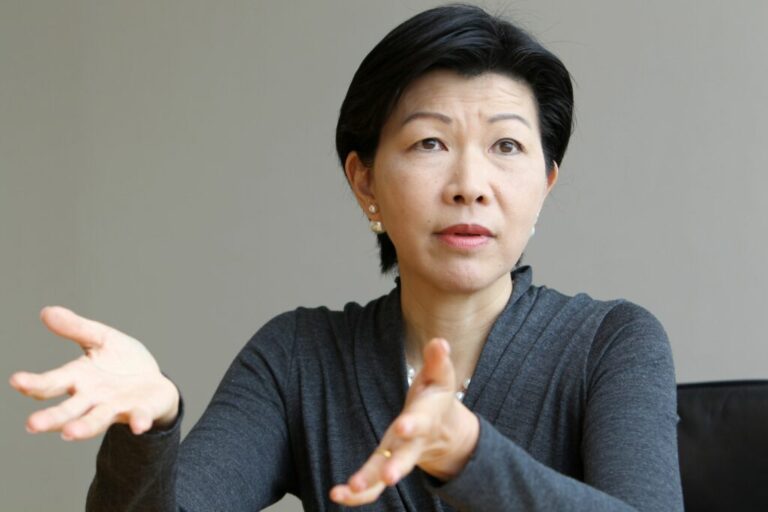Kathy Matsui, the former vice chair of Goldman Sachs Group’s Japan unit, said the realisation of “womenomics,” the term that she coined about the economic benefits of empowering women, is still a work in progress.
“One challenge that Japan faces is whether we can increase the representation of women in leadership positions,” Matsui said. While the employment rate for women has increased, it’s still difficult for them to move from non-regular jobs to management positions, she said.
ADVERTISEMENT
CONTINUE READING BELOW
Matsui’s comments come after the Japanese government pressed companies listed on the Prime Market Index of the Tokyo Stock Exchange to raise the ratio of female executives to 30%. According to the cabinet office, in 2023, women accounted for only 13% of the total number of executive positions at prime listed companies.
It is the employers’ responsibility to develop human resources and create an environment where women can play an active role, according to Matsui. The government is limited in what it can do to help increase female managers, she said.
While the number of women in the workforce has risen more than 30% over the past 40 years, over 50% of them are part-time workers, according to data from the Ministry of Health, Labour and Welfare.
Matsui is known for her womenomics research which explored the economic benefits of boosting female participation in the Japanese labour market. Former Prime Minister Shinzo Abe’s policies were influenced by her work.
Matsui said the effort to increase women in leadership positions is “a matter of trial and error to find the best fit” for the organisation. With Japan’s ageing population and declining birthrate, diversity is essential for companies’ competitiveness as “friction leads to innovation, and we can detect risks that we did not anticipate,” she said.
The former chief Japan equity strategist who stepped down at the end of 2020 after 26 years with the firm, also witnessed the country’s change since the bubble era.
The driver of Japan’s stock rally has been “the expectation that the economy is exiting deflation,” Matsui said about the recent record high of the Nikkei 225 Stock Average. She said that the market is finally seeing this positive virtuous cycle of higher profitability, wage growth and consumption.
Matsui said companies’ structural reform will be a key catalyst for the market.
ADVERTISEMENT
CONTINUE READING BELOW
“The governance piece is probably above and beyond everything,” she said, citing that Japanese companies are thinking more about their capital efficiency and shareholder returns.
Matsui praised recent corporate buyback announcements as good step forward, and said that she would like to see more plans on dividends. As part of the governance reform, having a more diverse boardroom will bring in different perspectives that will be valuable for these companies, she said.
Matsui teamed up with three other experienced female financial executives to launch a venture capital fund in 2021. The MPower Partners Fund, a rarity in Japan for its female leadership, aims to invest $150 million in sectors including health care, fintech, education and the environment.
Over the past three years interacting with various start-ups, Matsui’s biggest surprise was the different mindset of younger generation. Younger males have very different values from their parents’ generation, and they care more about work-life balance, she said.
“It is the values and power of the next generation that will move mountains,” Matsui said.
© 2024 Bloomberg

